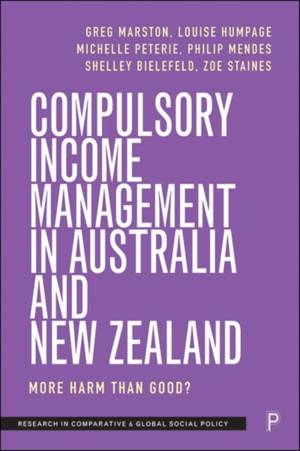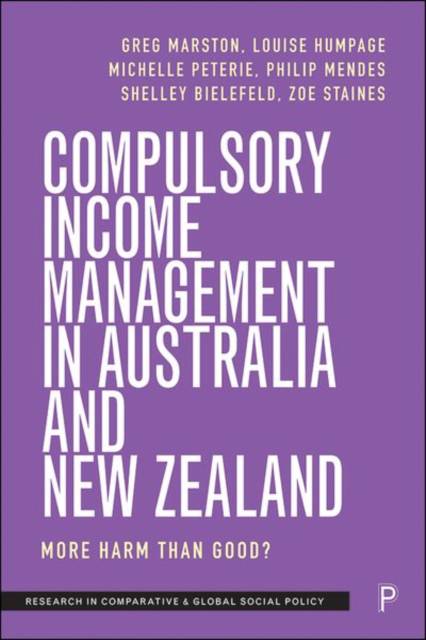
- Retrait gratuit dans votre magasin Club
- 7.000.000 titres dans notre catalogue
- Payer en toute sécurité
- Toujours un magasin près de chez vous
- Retrait gratuit dans votre magasin Club
- 7.000.0000 titres dans notre catalogue
- Payer en toute sécurité
- Toujours un magasin près de chez vous
Compulsory Income Management in Australia and New Zealand
More Harm Than Good?
Greg Marston, Louise Humpage, Michelle Peterie, Philip Mendes, Shelley Bielefeld, Zoe StainesDescription
More than a decade on from their conception, this book reflects on the consequences of income management policies in Australia and New Zealand.
Drawing on a three-year study, it explores the lived experience of those for whom core welfare benefits and services are dependent on government conceptions of 'responsible' behaviour. It analyses whether officially claimed positive intentions and benefits of the schemes are outweighed by negative impacts that deepen the poverty and stigma of marginalised and disadvantaged groups.
This novel study considers the future of this form of welfare conditionality and addresses wider questions of fairness and social justice.
Spécifications
Parties prenantes
- Auteur(s) :
- Editeur:
Contenu
- Nombre de pages :
- 236
- Langue:
- Anglais
- Collection :
Caractéristiques
- EAN:
- 9781447361497
- Date de parution :
- 19-07-22
- Format:
- Livre relié
- Format numérique:
- Ongenaaid / garenloos gebonden
- Dimensions :
- 156 mm x 234 mm
- Poids :
- 512 g

Les avis
Nous publions uniquement les avis qui respectent les conditions requises. Consultez nos conditions pour les avis.






